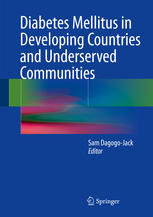

Most ebook files are in PDF format, so you can easily read them using various software such as Foxit Reader or directly on the Google Chrome browser.
Some ebook files are released by publishers in other formats such as .awz, .mobi, .epub, .fb2, etc. You may need to install specific software to read these formats on mobile/PC, such as Calibre.
Please read the tutorial at this link: https://ebookbell.com/faq
We offer FREE conversion to the popular formats you request; however, this may take some time. Therefore, right after payment, please email us, and we will try to provide the service as quickly as possible.
For some exceptional file formats or broken links (if any), please refrain from opening any disputes. Instead, email us first, and we will try to assist within a maximum of 6 hours.
EbookBell Team

4.1
40 reviewsAdopting a truly global perspective and a practical approach to diabetes—including pathophysiology, genetics, regional peculiarities, management, prevention and best practices—this book is an excellent resource for clinicians and policy-makers working with patients in more austere settings. The global prevalence of diabetes is estimated to increase from 422 million in 2014 to 592 million in 2035. Sadly, low- and middle-economy countries are projected to experience the steepest increase, but even in developed economies, vulnerable demographic subgroups manifest disparities in diabetes prevalence, quality of care, and outcomes. This book extends coverage to those underserved and minority communities in the developed world. In a consistent chapter format, it discusses classification, pathophysiology, genomics, diagnosis, prevention and management of diabetes in economically challenged regions as well as underserved populations in affluent nations. Suggestions regarding future directions in the organization of diabetes care delivery, prevention and research priorities are also provided. The detailed identification of barriers to optimal care and the practical approach to the management and prevention of diabetes make Diabetes Mellitus in Developing Countries and Underserved Communities a valuable resource for clinicians, researchers and health policy leaders.